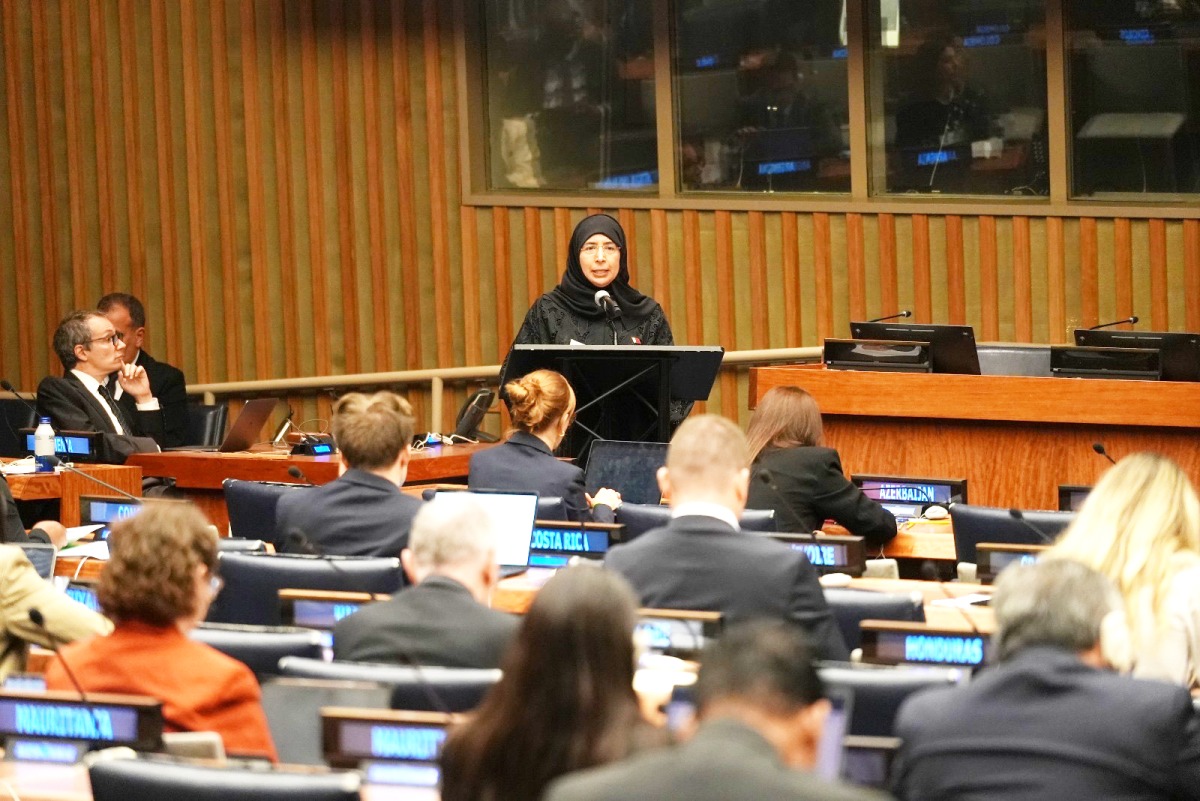The Minister of Public Health H E Dr. Hanan Mohammed Al Kuwari recently attended a high-level meeting at the UN General Assembly on antimicrobial resistance in New York. The theme of the meeting was “Investing in the present and securing our future together: accelerating multisectoral global, regional and national actions to address antimicrobial resistance.” During the meeting, a political declaration on antimicrobial resistance was adopted, and Dr. Al Kuwari represented Qatar in welcoming the declaration and highlighting the country’s commitment to addressing the challenges of antimicrobial resistance at regional and international levels.
In her speech, Dr. Al Kuwari discussed Qatar’s recent launch of its third National Health Strategy 2024-2030, which aims to improve the health and well-being of the Qatari population in line with Qatar National Vision 2030. The strategy focuses on excellence in service delivery, sustainability, and efficiency through an integrated and resilient health system. Additionally, the strategy supports Qatar’s efforts to meet the Sustainable Development Goals (SDGs) for 2030.
Qatar announced its National Action Plan on Antimicrobial Resistance in 2019, aligning with the World Health Organization’s global action plan on antimicrobial resistance and the political declaration from the UN General Assembly meeting in 2016. The plan includes efforts across various sectors, such as human health, the environment, food safety, and animal health, with the goal of reducing antimicrobial resistance in Qatar to the lowest possible level. It involves implementing a national program for infection control and prevention, optimizing the use of antimicrobials in human and animal health, promoting research and investments related to antimicrobial resistance, raising awareness, enhancing data collection, and establishing a national program for monitoring and surveillance of antimicrobial resistance and consumption.
Dr. Al Kuwari emphasized the Ministry of Public Health’s ongoing efforts to reduce the risks of antimicrobial resistance, particularly among vulnerable populations such as children, the elderly, and individuals with weakened immune systems. The United Nations recognizes antimicrobial resistance as a significant global threat to public health, food security, and the achievement of the UN Sustainable Development Goals for 2030. By actively participating in high-level meetings and adopting national action plans, countries like Qatar are taking important steps towards addressing this critical issue and protecting the health and well-being of their populations.


























